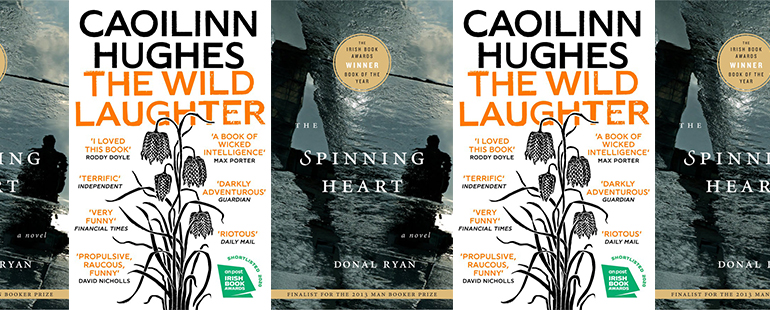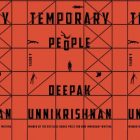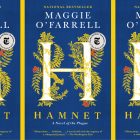Two Contemporary Retellings of The Playboy of the Western World

When John Millington Synge’s play The Playboy of the Western World opened in Dublin in 1907, rioters took to the streets, believing the work to be an affront to morality and to the public image of Ireland. The play, which features a character named Christy Mahon who erroneously claims to have killed his father—and then tries twice more, again unsuccessfully, to kill him over the course of the play—was also derided for its central focus on patricide. Of course, the play is now a classic, examining, among other elements, the definition of a hero and the role of the community in that definition. Over a hundred years later, two contemporary novels, both set following the 2008 financial crisis, echo the iconic play in numerous ways.
The Spinning Heart (2012), by Donal Ryan, focuses on the community of a small Irish town as its inhabitants react to their changing fortunes following the financial downfall of the Celtic Tiger, and also to personal tragedies, including the murder of an old man, the father of the protagonist. In The Wild Laughter (2020), by Caoilinn Hughes, a rural family must care for a ruined and dying patriarch, with the family then accused of assisting in his suicide. Clearly, the death of the father, possibly by a son’s hands, is prominent in both. With Ryan’s book, we suspect that the son did not kill the father, but part of the journey of the book is in considering that possibility from the perspective of others in the community. In Hughes’s book, we know that the family helped the father die by suicide, and much of the book is concerned with the weight, responsibility, and legality of that decision. Even given the seriousness of the subject matter, both books are often darkly hilarious, again echoing the classic play.
In the play, Christy Mahon arrives in a small town, announcing that he has killed his father. He is initially seen as a hero by the townspeople, who assume that he killed his father for just cause. He is lauded and celebrated; the women of the town all gather round, eager to be by his side, vying to become his wife. But then his father appears, and the truth is known; we watch as opinions shift and change. How quickly a hero can be made and unmade. The groupthink of the community is quite astonishing, and also amusing, as it swiftly shifts course, and much of the dark humor in the play comes from this satirical place.
Ryan is also clearly interested in how a community functions with its web of fact and opinion. There are 21 narrators in The Spinning Heart, all first-person, and no voice is repeated. Almost every character speaks about the relationship between parent and child, underscoring this central theme. We become intimately familiar with the town through these characters and their strong voices; opinions move and shift from one narrator to the next, pushing the narrative forward as rumors quickly become fact.
We meet Bobby Mahon first—perhaps not a coincidence that he shares a surname with Christy—and the book begins with his contentious relationship with his father: “My father still lives back the road past the weir in the cottage I was reared in. I go there every day to see is he dead and every day he lets me down. He hasn’t yet missed a day of letting me down.” Even notwithstanding a difficult childhood that included his father’s drinking and verbally abusing his mother and himself, Bobby has become an upright citizen in the town, a man that many look up to. A hero, of today. But Bobby’s lost his job as a construction foreman, taking on odd jobs here and there, and worrying about how to care for his wife and child. Bobby is the central character of this novel as his story is the one that threads all the others together. The novel feels a bit like a spider web, in fact, with Bobby held captive in the center. Ryan places Bobby’s narrative first—to establish him as the protagonist but also to position him as a sympathetic character. Later, he muses: “I thought about killing my father all day yesterday. There are ways, you know, to kill a man, especially an old, frail man, which wouldn’t look like murder.” We hear and see enough from Bobby to find it unlikely that he would actually kill his father; thoughts, after all, are different than actions. This separation, between thoughts and actions, and words and actions, is also central to Synge’s play: Christy is lauded for his words, but his actions never follow suit.
Rumors start flying that Bobby is having an affair with a woman for whom he does odd jobs. Then, at the halfway point of the novel, we learn from one of the characters that Bobby’s father has been killed. This narrator comments on the reaction of the town to the murder and the suspicion of Bobby as the killer: “Like, they’re all going mad off their heads around here, all the boggers, acting like the world is ending just because your man Bobby Mahon smashed his auld fella’s head in.” Then we hear from others: there is disbelief and astonishment, but there are also others who quickly buy into the rumors. From there, we see how Bobby’s reputation gets further tarnished, as he is called “Mad Bobby the Murdering Builder.” To many in the community, Bobby is no longer their hero.
Throughout it all, Ryan asks the reader to actively participate as part of the community, to ascertain who killed Bobby Mahon’s father. We sort through competing narratives, trying to make sense of the story, trying to separate fact from fiction. Unlike in Synge’s play, where the community takes Christy at his word, The Spinning Heart shows us the effect that multiple narratives have on determining the truth.
In The Wild Laughter, Hart Black’s father is dying, and the Chief—as Hart calls him— has also fallen from his place as a pillar in the community, bad investments compounded by the financial crisis. The novel is narrated in first person by Hart, and so we see the world through his empathetic, and, we slowly learn, limited lens. Hart’s voice, fed by Hughes’s rich language—she is a poet as well as a novelist—provides much of the energy of the book. The novel starts by Hart telling us his father has died: “The night the Chief died, I lost my father and the country lost a battle it wouldn’t confess to be fighting. For the no-collared, laboring class. For the decent dependable patriarch. For right of entry from the field into the garden.” Right from the start, then, we see Hughes’s interest in telling the story of a man and his family, but also in telling the story of contemporary Ireland. From here, the book moves back in time to explore the Chief’s financial and physical decline and his impending death. We quickly learn that while Cormac, Hart’s older brother, is the one who was sent off to university, Hart stayed behind and therefore has become his father’s right hand. His mother is oddly removed from the family dynamic—Hart only ever calls her “Nora”— and the relationship between the brothers is fraught. Echoes of the Cain and Abel story abound.
But Hart, like Bobby, is a sympathetic character, one whose heart often outpaces his head. As he sits with his father towards the end of his life, he shares things that he wrote down for his father, to show him how he’ll be remembered. He thinks: “The measure of love I had for him was not unlike the riz biscuits, in the awkward uncontainable way that made it wise to push the batch aside and start over for fear of being poisoned by too much swelling.” We feel the pain in Hart as he watches his father decline, and as he researches the best way to assist his father with his suicide. This is a book that could be maudlin, but Hughes’s humor and the vibrancy of Hart’s voice keep a light tone constantly running under the more somber narrative.
Slightly past the halfway point of the novel, the moment arrives. They give the Chief morphine, but it doesn’t work precisely as they had planned. And, once again, it all falls to Hart: “As he led Nora out of the room, fast as he could compel her to move, Cormac turned back and gave me the most warnsome look I’d ever seen, laying plain what it was I had to do, with my own bare hands.” The juxtaposition of Christy’s boasting about killing his father in The Playboy of the Western World with the reality of Hart killing his father as an assisted suicide is striking. In comparison, should Hart not be considered a hero for helping his father with his request? It only becomes more painful after Hart’s father dies, and Hart has to deal not only with his grief but also with the police and the legal system, as it is against the law to assist with suicide in Ireland.
Both novels are clearly interested in the diversity and hierarchy that exists within any community. In The Spinning Heart, Ryan includes people close to Bobby, but we also hear from narrators whose perspectives are farther afield, including a young construction worker from Russia who struggles to speak English. Ryan includes men, women; straight, gay, old, and young. Unlike the community in Synge’s play, the Irish community of this village is diverse, bringing differing viewpoints into the mix. And we see the result this has on the way the community reacts to the arrest of Bobby. Unlike in the Synge play, where the community often thinks and moves as one, diverse reactions are borne out of a diverse population. The Ireland of today is vastly different from the Ireland of 1907. The hierarchy of the community is important as well. One of the characters notes about Bobby and his boss: “It’s Pokey should have had the bad auld yoke of a father and Bobby that was born with the silver spoon.” Fortunes rise and fall, but the starting point in the line-up determines much of where one lands.
Hughes’s interest in the hierarchy of the community is somewhat broader. The church, the police, and the legal system, entities that are supposedly there to help the individual, instead represent authorities that dismiss the individual’s rights. This is akin to the sentiment in the Synge play where the police are distrusted, and the community takes over their authority when their opinions on Christy change and they go after him as a mob. But such action is not possible in the contemporary world of The Wild Laughter, where Hart is confounded by the machinations of the legal system. This is where we see how his viewpoint can be limited. Unlike in The Spinning Heart, where the multiple viewpoints allow the reader to consider the various truths, the use of a single point of view in Hughes’s novel makes us understand the fragility of the individual.
At the end of Synge’s play, Christy leaves town with his father, but he insists that now the tables have turned: “Go with you, is it? I will then, like a gallant captain with his heathen slave. Go on now and I’ll see you from this day stewing my oatmeal and washing my spuds, for I’m master of all fights from now.” The roles have been reversed, with Synge’s language reflecting that of the master-slave relationship, not a typical one between parent and child. Just as the crowd’s sentiments shifted back and forth, the authority has now shifted from father to son. The next generation represents the future. And yet it is a mockery, a shift in words alone. Most everyone in the town now understands that Christy is a fool and most certainly not a hero.
In both The Spinning Heart and The Wild Laughter, there is a true shift in power. The sons remain after the deaths of their fathers. This represents a new world order, the young replacing the old. For Bobby, there is probably some relief that his father is gone, but his future remains uncertain. For Hart, he is mourning the death of his father and the death of a dream of a better life. The Celtic Tiger caused many Irish to hope in a way that they hadn’t before, and then those hopes crashed and burned. It is rarely easy to be the one left behind; it is perhaps even harder to be the hero.



